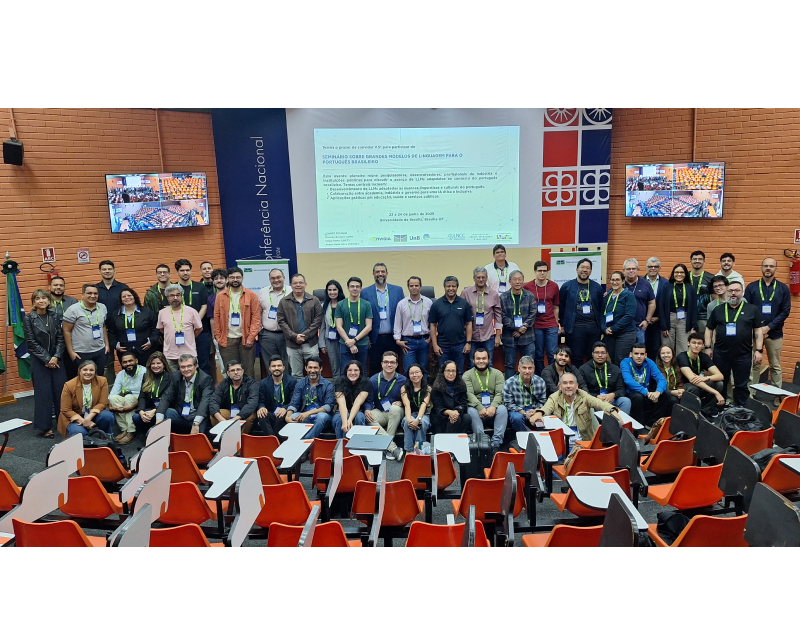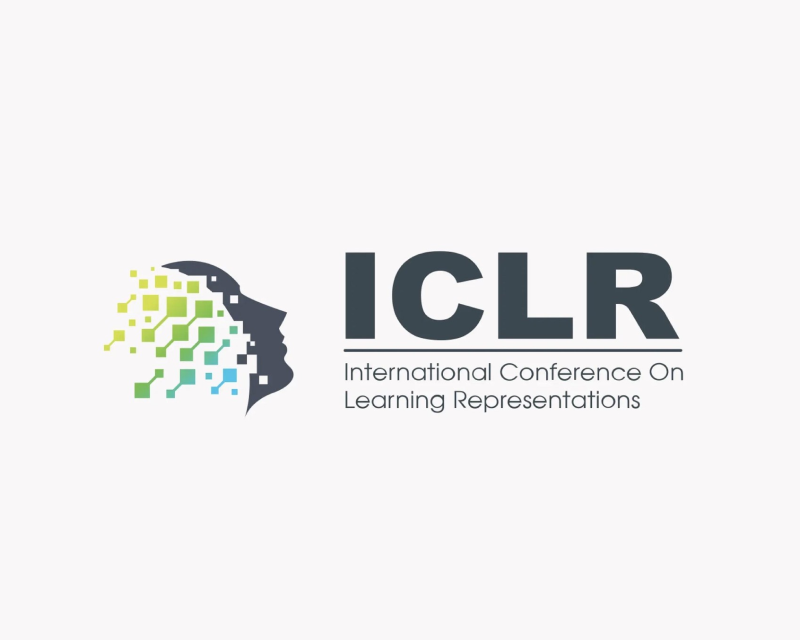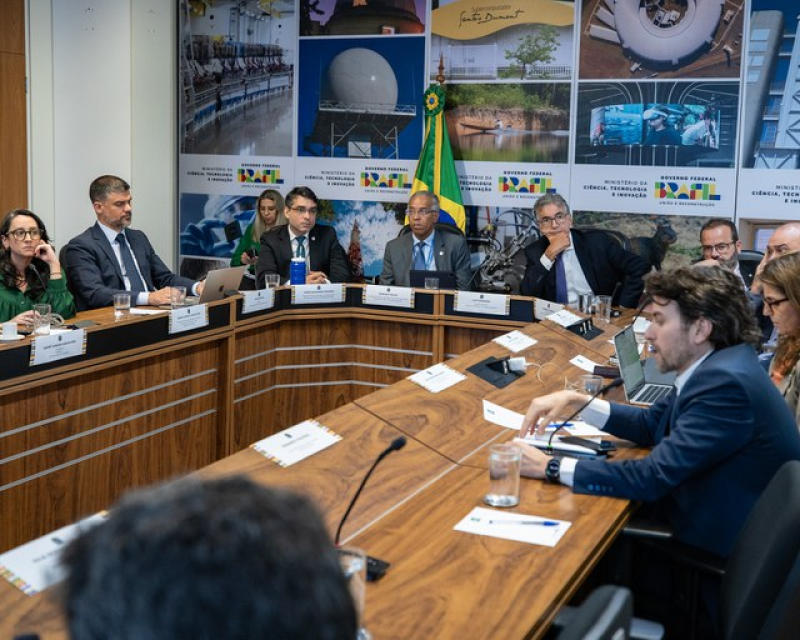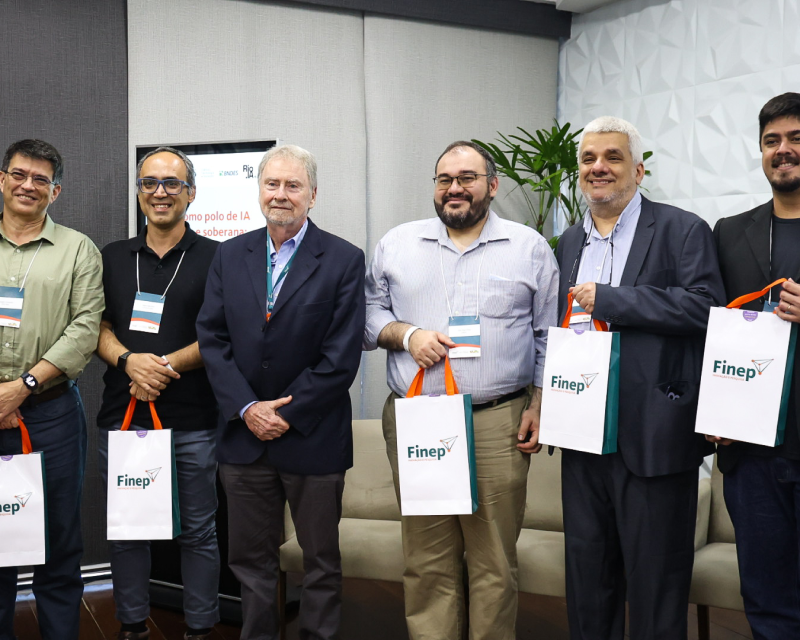Brazil Debates the Future of Portuguese-Language Artificial Intelligence at Seminar
Jul, 25 2025

On June 23 and 24, Brasília hosted an event marking a milestone in national technological development: the Seminar on Large Language Models for Brazilian Portuguese. The meeting brought together the country’s leading experts—university researchers, government representatives, and industry leaders—to outline Brazil's path in the era of artificial intelligence. The consensus was clear: we urgently need to develop AI systems that truly understand our Portuguese, our culture, and our specific needs.
Currently, the best AI tools—such as chatbots and virtual assistants—perform much better in English. Imagine a doctor using a system that doesn’t fully grasp expressions like “persistent headache” or “blood pressure medication.” Or a teacher trying to use educational tools that miss the nuances of our teaching methods. This was the core motivation behind the debate: creating technologies that speak—and think—like Brazilians.
The event highlighted that we already have promising foundations. Projects like Sabiá, developed by Maritaca, and Tucano and Carcará from the National Laboratory for Scientific Computing (LNCC), are examples of language models in progress. The Santos Dumont supercomputer in Rio de Janeiro is already being used for these purposes. Additionally, open databases such as GigaVerbo are helping to “feed” these systems with high-quality Portuguese.
But the challenges are significant. One major issue discussed was the lack of suitable Portuguese-language material for training these systems. While English has billions of available texts, Portuguese lacks robust databases. Another obstacle is infrastructure: training these models requires extremely powerful computers and significant energy consumption.
However, the practical applications justify all the effort. In healthcare, imagine a system that helps public healthcare doctors interpret tests or suggest diagnoses. In education, tools that support teachers in creating more effective lessons. In government, more agile and accessible public services. These were some of the concrete possibilities presented.
The Ministry of Science, Technology and Innovation (MCTI) emphasized that the Brazilian AI Plan (PBIA) is already in motion, with resources allocated to drive these developments. The roadmap outlined by experts includes three main pillars: continuous investment in national research, strategic partnerships between universities and companies, and a commitment to ethical and inclusive technological development.
During his presentation at the seminar, Prof. Laurent Dardenne, a researcher at LNCC, shared the institution’s vision on the role of national science in the development of advanced technologies, in alignment with the Brazilian Artificial Intelligence Plan (PBIA), particularly focusing on: AI Factory; construction of a Brazilian Portuguese model; software stack; and AI for science.
The initiatives of LNCC and the Artificial Intelligence Institute (LNCC) align with key PBIA actions, especially: Development of LLMs in Portuguese (Action 7); Training of qualified human resources (Action 16); Creation of a national software stack (Action 12); International cooperation and open source (Action 18); Applications in genomics, precision medicine, and drug planning (Actions 4 and 5); and Technological sovereignty and infrastructure (Action 11).
As the starting point of his talk, the researcher highlighted LNCC’s high-performance infrastructure, which houses the Santos Dumont supercomputer—the largest in Latin America dedicated to scientific research. With a capacity of around 20 petaflops and currently expanding with new GPUs aimed at AI, the machine has been essential in meeting the growing computational demands of Brazilian researchers across various fields.
But as Dardenne pointed out, merely having a powerful machine is not enough. One of LNCC’s main focuses has been building an AI Factory—a concept that involves more than just infrastructure: it also includes creating a national software stack, specialized services, foundational models, and a collaborative environment among public and private institutions.
This initiative seeks to ensure Brazil’s technological sovereignty, enabling the country to develop solutions tailored to its social, linguistic, and cultural realities. In this context, the Carcará project stands out as a Brazilian Portuguese language model aimed at securing control over sensitive data and promoting autonomy in the use of strategic technologies. “It is worth noting that Carcará implements DeepSeek v3, pretrained by the Chinese company of the same name. The model was benchmarked in Portuguese and ranked at the top of the performance list for Brazilian Portuguese, with a result of 81%,” commented Prof. Fábio Porto.
Another pillar of the AI Factory is the development of a proprietary software stack, essential for the efficient use of available hardware. The Gypscie system, created by the DEXLAB-LNCC Research Group, allows integrated data management, model training, inference, and result validation. The goal is to reduce dependence on commercial software, which is often expensive and not well-suited to the needs of the national public sector.
The professor also emphasized that Brazil’s AI Factory is inspired by international incremental development strategies, such as those adopted by Japan and the United Arab Emirates. The suggested path is to start with smaller models, such as those with 7 billion parameters, then advance to intermediate models, and progressively reach robust foundational models—learning, adapting, and consolidating knowledge at each step. In this regard, Dardenne highlighted ongoing discussions with Japanese institutions, which have already shown interest in scientific cooperation with Brazil, particularly in AI for mathematical and scientific applications.
Beyond infrastructure and technological development, LNCC also stands out for its applied research in strategic areas such as predicting extreme climate events (Rionowcast project, RJ), healthcare, and more. The laboratory has been using AI in health-related projects—such as image exam analysis in partnership with hospitals—and also in genomics, to understand diseases like Chagas disease, using language models to identify genetic markers. Another notable project is the development of molecules for new drugs, combining generative AI and evolutionary algorithms in an innovative approach to drug planning.
The professor also addressed a sensitive issue: the difficulty in accessing national data, especially in healthcare. Often, Brazilian institutions do not share their datasets for research, which forces studies to rely on data from foreign hospitals. According to him, this scenario needs to be overcome through more dialogue and cooperation among the government, universities, and the productive sector—otherwise, Brazil risks continuing to import solutions it could be developing internally.
Finally, Dardenne reinforced that LNCC is aligned with PBIA principles and operates based on three pillars: cutting-edge infrastructure, training of qualified human resources, and strategic and ethical governance. The institution’s bet is clear: to use Artificial Intelligence as a lever to tackle Brazil’s major challenges and build a more sovereign, inclusive, and innovative future.
The seminar made it clear that Brazil has all the conditions to become a leader in Portuguese-language AI. With our top-tier universities, cultural diversity, and technological capability, we can create solutions that not only replicate what already exists abroad but genuinely adapt to the Brazilian reality. The challenge is significant, but the first step—the recognition of the strategic importance of this topic—has already been taken. Now it’s time to put ideas into practice and ensure the AI revolution benefits all Brazilians.
If you missed the seminar, watch it here: https://www.youtube.com/watch?v=UNJiExIspVM
Outreach Office
Artificial Intelligence Institute


